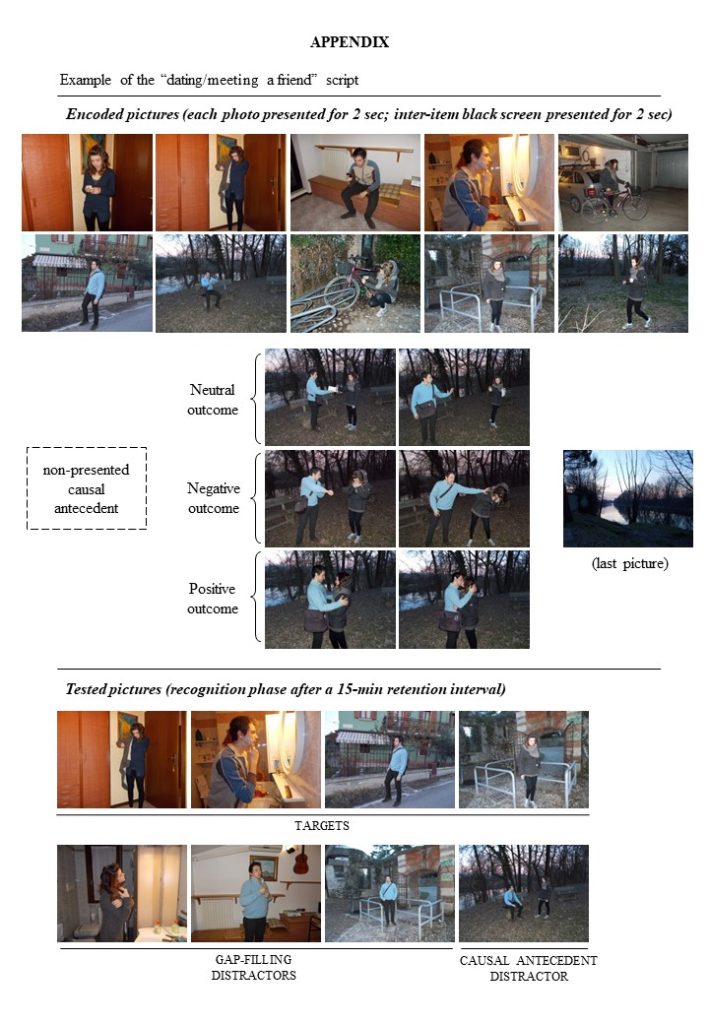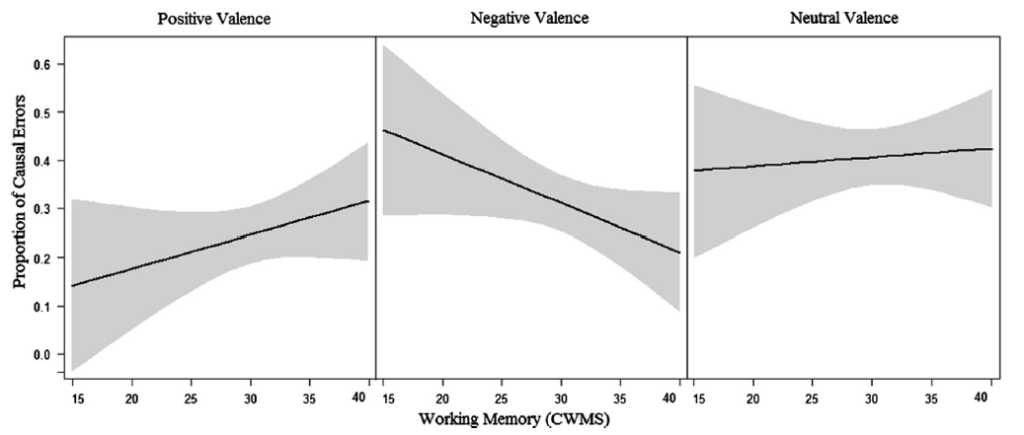People often wonder whether their memory for past events is accurate or not. We can trust in most of our memories; however, we can easily face false memories when we remember things that never occurred or when we remember details of an event that are far from those originally encountered (Roediger & McDermott, 1995). Many factors – pertaining to both the rememberer or the stimuli we are asked to remember – either boost false memories or protect against them. Our research focuses on such facilitating or protecting factors in both adults and children.
New Emotional False Memories Paradigm
We developed a new False memory paradigm (Mirandola et al., 2014; Mirandola et al., 2017) that enables us to study memory distortions for emotional events that may occurr in everyday life. For example, if you observe a story (depicted through pictures) where a boy and a girl get ready to meet each other, you may produce two types of false memories: 1) erroneously remembering an action that is consistent with the story/script but that was not presented (the boy brushing his teeth while he was shaving); 2) inferring having seen the antecendent of an action emotionally salient (why is the boy mad at the girl? Probably she was late to the date).
Emotion typically favors accuracy and prevents from incurring false memories (i.e., memory ehancing effect), but this depends on individual differences in higher cognitive processes, such as working memory, and in personality.

Factors that protect against false memories
- Working memory
Working memory allows for a reduction of false memories – especially for negative events – via inhibitory mechanisms; people who have high working memory abilities are better able to ward off non-experienced events from their memories, thus excluding them from later retrieval.

- Personality
Extraverted individuals produce fewer false memories for postive events, given their higher attention toward positive stimuli which increases memory accuracy and diminishes inclusion of non-experienced details or events.
Factors that boost false memories – depressive/anxious traits
Individuals with depressive or anxious traits tend to incorporate into their memories more negative events than positive or neutral, via ruminative mechanisms.
False memories in children
Our research focus on those factors that influence false-memory production during development, for example:
- higher propensity to produce memory distortions with increasing age due to higher semantic knowledge ability;
- individual differences in higher cognitive processes that influence false memory production;
- differential probability to incur memory distortions in atypical development: learning disabilities and other neurodevelopmental disorders.